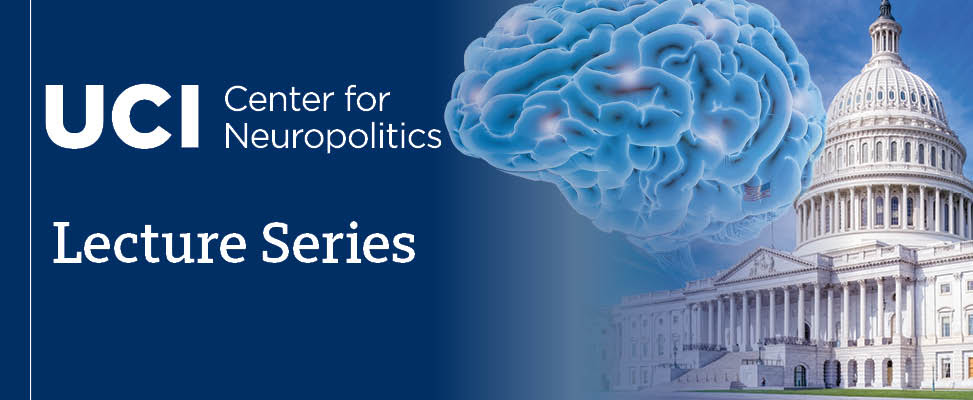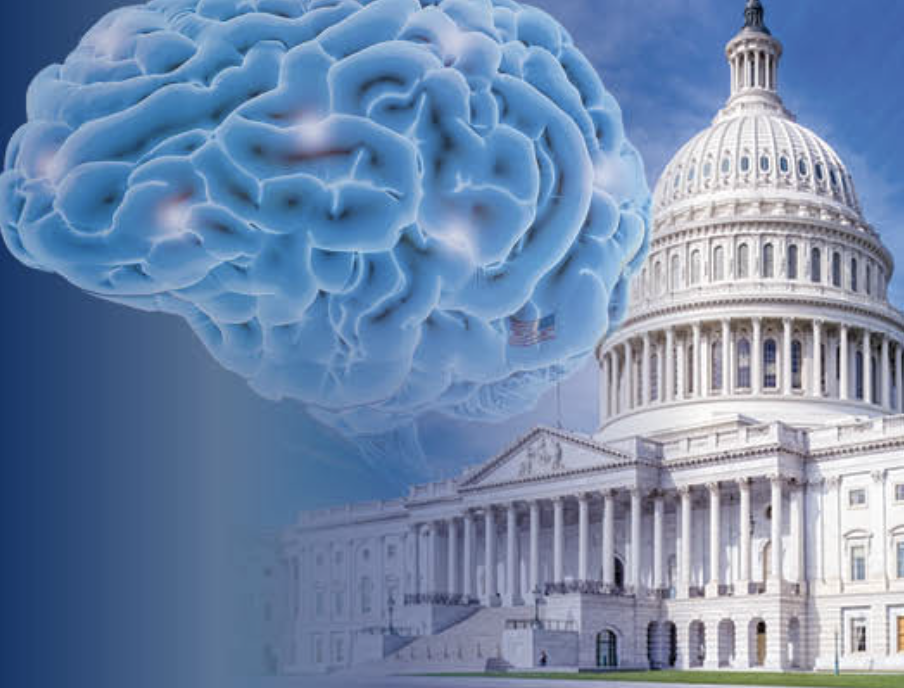Our Mission
The Center for Neuropolitics contributes to the ongoing political dialogues by engaging the multi-disciplinary expertise of neuroscience, political science, neurology, psychiatry, psychology, and philosophy.
Future Events

Guess who’s coming to dinner in 2024?
How Partisan Identity Politics is Taking Over America
Darren Schreiber, PhD, JD
Senior Lecturer in Politics
University of Exeter
Friday, May 3, 2024
Noon – 1:15 p.m. PT
REGISTER
FREE Virtual Event
Registration Required
The past twenty years have demonstrated the role of biology in our political predispositions, with evidence from twin studies, genetics, and brain imaging. Recent trends have highlighted political polarization on an emotional, identity-driven level where the other side is seens as a hated enemy. The consequences have ranged from increasing dissatisfaction with democracy to a rise in violent extremism.
Featured Speaker

Darren Schreiber, PhD, JD
Senior Lecturer in Politics
University of Exeter
Darren Schreiber’s research centers on emergence and complexity in political systems. While earning his Ph.D. in Political Science at UCLA, Darren developed an agent-based computer simulation of the formation dynamics of political parties. He is a pioneer in the field of neuropolitics and twenty five years ago was the first to use functional brain imaging (fMRI) to study the neural foundations of politics. His research has appeared in Science, Proceedings of the National Academy of Sciences, PLOS One, and Political Psychology.
Save the Date

Past Events
2023 Symposium: Conspiracy Thinking in American Politics
Delve into the phenomenon of increasing conspiracy thinking in American politics with insights from political science, neuroscience, law, psychology, and philosophy. Explore the legacy of Psychiatrist Jerrold Post, MD (1934-2020), a founder of political psychology, through the Annual Jerrold Post Lecture on Neuropolitics. Gain valuable perspectives on this critical issue that has impacted the country.
Click on the link above for the video of our 2023 Symposium “Conspiracy Thinking in American Politics”.
Cognitive deterioration of politicians (including diminished memory, impaired decision-making, mood alterations, and dementia) is a critical emerging issue. This Symposium addresses the current state and future directions of assessment of cognitive function and decline among politicians. As professions such as law and medicine are addressing cognitive effects of age, their insights may inform development of the proper strategy within politics.
Click on the link above for the video of our 2022 Symposium “Cognitive Decline and Political Leadership”.
Presidential Leadership and Disability
March 15, 2024

The age of presidential candidates has become a salient concern, but age is not the only physical factor that should concern citizens. Presidents can also suffer various forms of illness, both physical and psychological. This talk highlights the nature of these concerns and how we might work to mitigate their impact on political outcomes.
The lecture is presented by Rose McDermott, PhD, who is the David and Mariana Fisher University Professor of International relations at Brown University and a Fellow in the American Academy of Arts and Sciences. She is author of five books and over two hundred academic articles encompassing topics such as American foreign and defense policy, experimentation, national security intelligence, gender, social identity, cybersecurity, emotion and decision-making, and the biological and genetic bases of political behavior.
The Havana Syndrome: A Disorder of Neuropolitics?
April 19, 2023

In one of the most extraordinary cases in the history of science, the mating calls of insects were mistaken for a “sonic weapon” that led to a major diplomatic row. The lecture traces the origins of the syndrome, the response of the U.S. government, the results of scientific investigations and opinions, the evolution of the syndrome over time and similar phenomena that have occurred in the past.
The lecture is presented by Robert W. Baloh, MD who is a Professor of Neurology and Head and Neck Surgery (Emeritus) at the David Geffen School of Medicine at UCLA. Author of 14 books and more than 350 articles in peer reviewed journals, he is a pioneer in the study of the vestibular system and clinical neurotology. He has a recent book on Havana Syndrome co-authored with Robert Bartholomew, a sociologist from New Zealand. Two other recent books are: “Medically Unexplained Symptoms” and “Exercise and the Brain”.
Liberals, Conservatives, and the Political Brain: fMRI Studies of Political Ideology
January 20, 2023

Emerging research examine functional connectivity (ie, synchrony or correlation of activity between multiple brain regions) has begun investigating the neural underpinnings that drive political ideology, political attitudes, and political actions. This lecture presentation explores the neurological roots of politics with a large sample, whole-brain analysis of functional connectivity across common fMRI tasks. Studies to date suggest that liberals and conservatives that can be identified with high accuracy using contemporary artificial intelligence methods. The data suggest that biological and neurological roots of political behavior run deeper than previously thought.